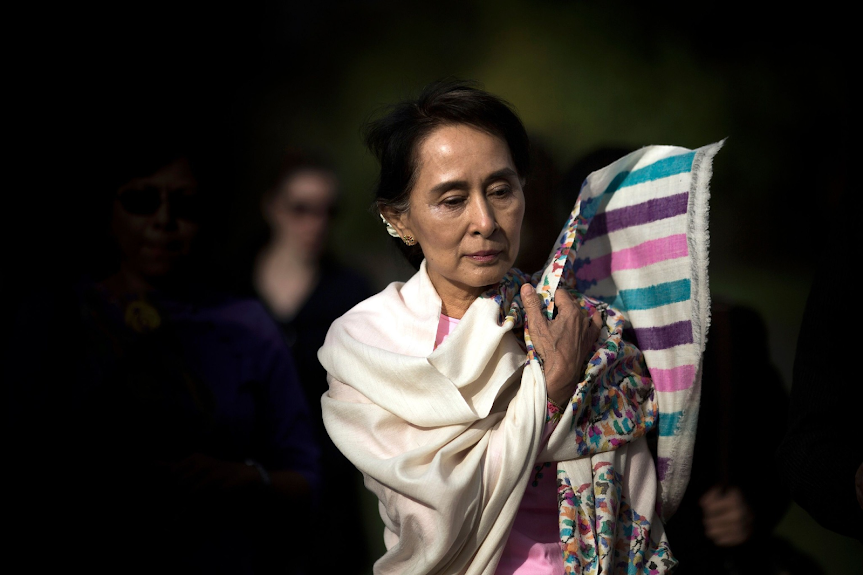Myanmar Spring Chronicle – September 14, 2023
Daw Aung San Suu Kyi’s Health Concerns and Arrests of Military Leaders on Economic Charges
Reports concerning the health of 78-year-old National League for Democracy (NLD) Chairperson, Daw Aung San Suu Kyi, have stirred concern both within Myanmar and internationally. It is widely reported in the media that she is not receiving adequate medical care, a fact that has raised alarms among the public and her family. Her son, residing in Britain, has also expressed his worries to the media.
Recent reports suggested that Daw Aung San Suu Kyi experienced dizziness and vomiting after being administered antibiotics for a toothache while in detention. However, no further updates have surfaced regarding her condition, and the military council has remained silent on the matter. Given her age and the limitations of food and medical treatment in prison, there are legitimate concerns for her well-being. Unlike her previous detentions under the SLORC and SPDC regimes, where she was in relatively good health, this time, she was arrested at the age of over 75, making her health a paramount concern.
The National League for Democracy, operating abroad, issued a press release on September 14, addressing Daw Aung San Suu Kyi’s health and detention. In the statement, they asserted that she has been unlawfully detained without the rights afforded to political prisoners. Moreover, they voiced concerns about her access to proper medical care, nutritious food, and suitable accommodation, which they believe is intentionally risking her life. The NLD, while acknowledging the efforts of the United Nations, ASEAN Community, neighboring countries, international organizations, and internal and international revolutionary forces in advocating for the immediate release of Daw Aung San Suu Kyi and all political prisoners, earnestly called on these stakeholders to exert even stronger pressure to secure their release.
It is noteworthy that Daw Aung San Suu Kyi’s current detention conditions differ substantially from her previous house arrest experiences under past military regimes. The availability of medicine, quality of food, and living conditions vary significantly. Despite her being in a comparatively better position compared to other political detainees, the challenges associated with aging may render her illnesses difficult to manage without proper and adequate treatment.
From 2015 to 2020, Daw Aung San Suu Kyi faced a loss of trust from certain ethnic parties, organizations, and Western nations due to the Rohingya issue. Nonetheless, the majority of Burmans and a significant portion of Myanmar’s ethnic groups continue to hold faith in her leadership, making her a central figure in Myanmar’s political landscape. The current military leadership under Min Aung Hlaing, which seized power in 2021, is determined to end her political influence and has gone beyond merely confining her to house arrest, as seen during previous regimes. Her multiple prison sentences on charges ranging from criminal offenses to corruption and leaking state secrets indicate a deliberate effort to obstruct her political return.
However, there are indications that the military council might consider engaging with Daw Aung San Suu Kyi as a strategic move, particularly when the balance of power is shifting or territorial control is at stake. The meeting with the former Thai foreign minister on July 9 serves as an example of such overtures. Yet, Daw Aung San Suu Kyi’s response remains a crucial factor in determining the council’s course of action. Engaging in meaningful discussions and compromises when one party is treated as a prisoner without equal status is a challenging endeavor. It is high time for the military council to recognize that they no longer possess unchecked authority. Additionally, in a nation grappling with civil unrest and led by an aging political leader just two years away from turning 80, Myanmar’s future is increasingly influenced by multiple political and military forces.
Another noteworthy development is the unverified rumors suggesting that allegations of trade corruption and abuse of power within the military council have reached high-ranking generals and lieutenant generals within the inner circle of the military leadership. Recent interrogations related to the Palm Oil Industry Association and the surge in oil prices led to the arrest and questioning of Major General Yan Naung Soe, the Secretary of the Central Committee for Trade and Commodity Acceleration Working Committee. Subsequently, reports emerged of Lieutenant General Moe Myint Tun, who appointed Yan Naung Soe, being placed under house arrest for investigation. There have also been speculations regarding the detention of Vice Chairman of the Military Council, Lt. Col. Soe Win. These reports remain unconfirmed, but they underscore the possibility of internal divisions arising from investigations into business import licenses and the central bank’s dollar sales within the military council. The situation warrants close observation.

